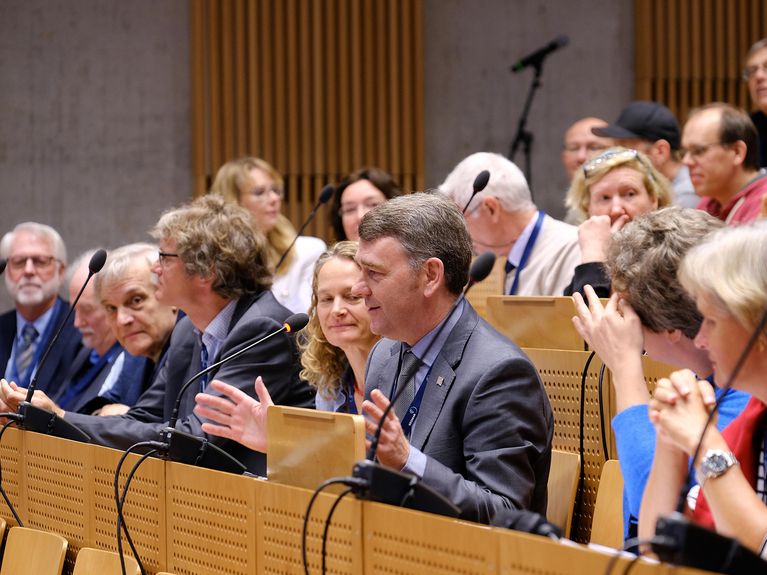
Story #01
Strategic Research for Major Challenges
24 years ago, we fundamentally redesigned research funding at Helmholtz – by introducing a system that consistently addresses the greatest challenges, ensures excellence, and promotes collaboration. Today, program-oriented funding is a key factor in high-impact research.
Through long-term research programs and with the aid of its unparalleled facilities around the globe, the Helmholtz Association pursues answers to the most essential questions of our time. To do so, our 18 Research Centers develop joint research programs. This approach ensures that, at Helmholtz, complex questions can be addressed by experts from a diverse range of disciplines. This is made possible by program-oriented funding (PoF).
Instead of providing blanket funding for individual Centers, through PoF we invest in strategic, cross-Center programs that are subject to regular review. The programs combine the Centers’ various forms of expertise, allowing us to far more effectively tap into synergies and to tackle major challenges more consistently than if the Centers did so separately. Further, Centers have to compete for funding – every seven years, the programs are revised, assessed by international expert committees, and awarded funding on the basis of scientific and strategic criteria alike. In this way, we can strengthen our strategic focus areas, reward excellence, identify potential, and foster scientific collaboration.
The approach has yielded impressive successes. We have oriented our research much more closely on certain fixed topics: the future energy system, planet Earth and climate change, epidemics, quantum technologies, and technologies for future particle accelerators. The Centers combine their research expertise in a complementary manner to jointly face long-term challenges with a strategic focus. At the same time, they continue to refine their unique research infrastructures as part of the joint strategic process. The development, construction and operation of complex research resources for an international community of users are a core element of the work we do. Whether accelerators, facilities for experimentation, research vessels, or supercomputers: they form a vital basis for scientific advances to overcome global societal challenges.
Thanks to program-oriented funding, we are optimally positioned to dynamically tackle the world’s greatest (and changing) challenges – which makes us not only a central player on the national and international research landscape, but also an attractive partner for collaborations around the globe. An outstanding example: the MOSAiC expedition, which was coordinated by the Alfred Wegener Institute, Helmholtz Centre for Polar and Marine Research. Bringing together experts from more than 80 institutions and 20 countries, its goals were to investigate the complex and poorly understood climatic processes in the Central Arctic and to improve how these processes are reflected in global climate models, contributing to more reliable climate forecasts. For us, excellence and collaboration go hand in hand – a success story that we’ll add new chapters to in the future.
Picture: GEOMAR/Jan Steffen
Participating centers
- AWI
Alfred Wegener Institute, Helmholtz Centre for Polar and Marine Research
- CISPA
CISPA Helmholtz Center for Information Security
- DESY
Deutsche Elektronen-Synchrotron DESY
- Jülich
Forschungszentrum Jülich
- Geomar
GEOMAR Helmholtz Centre for Ocean Research Kiel
- GFZ
GFZ Helmholtz Centre for Geosciences
- GSI
GSI Helmholtzzentrum für Schwerionenforschung
- DLR
German Aerospace Center
- DKFZ
German Cancer Research Center
- DZNE
German Center for Neurodegenerative Diseases
- UFZ
Helmholtz Centre for Environmental Research – UFZ
- HZI
Helmholtz Centre for Infection Research
- GS
Helmholtz Head Office
- Munich
Helmholtz Munich
- HZB
Helmholtz-Zentrum Berlin für Materialien und Energie
- HZDR
Helmholtz-Zentrum Dresden-Rossendorf
- Hereon
Helmholtz-Zentrum Hereon
- KIT
Karlsruhe Institute of Technology
- MDC
Max Delbrück Center